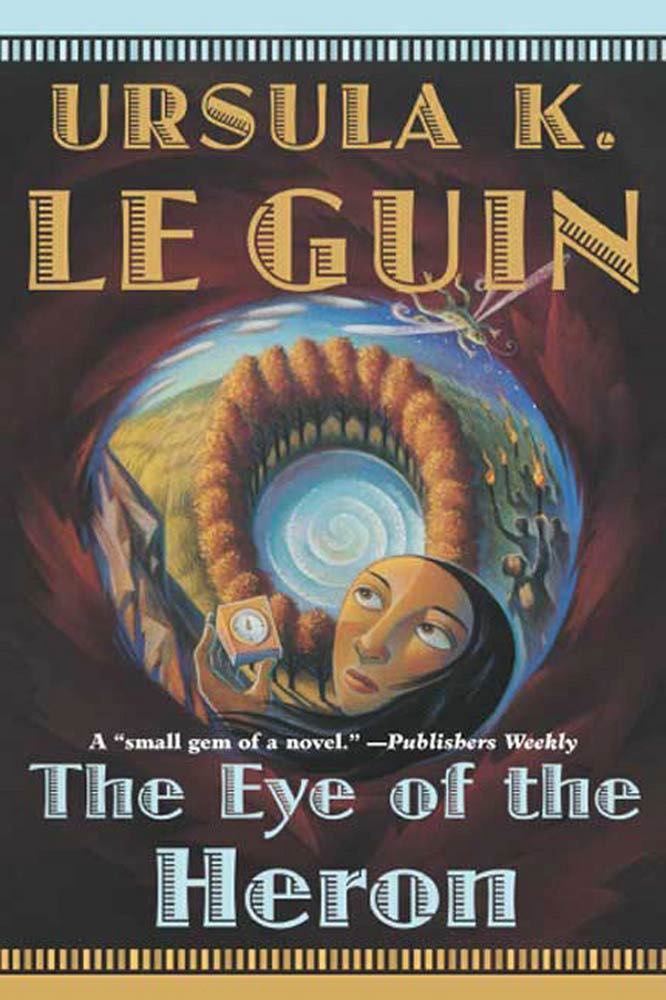The Eye of the Heron
Reviewed date: 2011 Sep 22
Rating: 2
192 pages
The Eye of the Heron starts as a story about nonviolent resistance. The Town is tired of being exploited by the City, so the Townsfolk organize peaceful demonstrations and passive resistance a la Gandhi to bring about change. Nonviolent resistance works when:
- The other side is civilized--i.e., your enemy respects your human rights.
- You sufficiently outnumber the opposition such that they need you to survive.
Without those elements, nonviolent resistance will be ended by swift, merciless violence meted out by the oppressors. And in this case:
- The City bosses, being descended from exiled criminals, have little compunction with murdering, raping, and enslaving the Townsfolk
- The City population outnumbers the Town population
It is no surprise that the nonviolent resistance turns into a bloodbath. Although ostensibly this leads to negotiation and compromise, in reality the Town does all the compromising and the City wins.
Then a curious thing happens. The hero of the book up to this point is Lev, a young respected leader in the Town. No one is more committed to nonviolence than Lev. But Lev is among those killed in the clash. A new hero emerges: Luz, the daughter of an influential City boss, leaves her dollhouse life in the City and joins the resistance. When the Town is broken and beaten, it is Luz who secretly organizes a group of 67 people to flee the Town and establish a new colony far away, where they can be free.
In a way, it's a story of female empowerment--Luz decides to live her own life rather than endure the only option available to her in the City: arranged marriage and life as a wife and mother. But I think it's also supposed to be a story of the triumph of an ideal. The Townsfolk worshiped the idea of nonviolence, but their insistence on attempting it under the noses of the City bosses was foolish. The proper way, as Luz and the rest of the escapees proved, was by simply leaving.
Now, I'm not sure I agree. The moral failings of mankind cannot be fixed by simply leaving the bad people behind and starting a new civilization. We are fallen, sinful creatures. Hatred, bigotry, and violence come from within. Further, violence can and is often an effective tool to combat evils such as oppression, rape, slavery, and crime. Nonviolence is not an appropriate ideal in itself.
And for some technical complaints: it's generally considered a bad idea for two main characters' names to start with the same letter. It's confusing to the reader. So for Le Guin to name her two main characters Lev and Luz is an awful, awful mistake. It tripped me up a number of times--I had to work hard to keep track of which character Le Guin was talking about.
